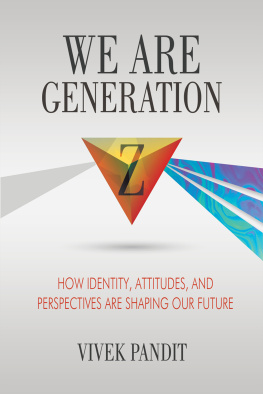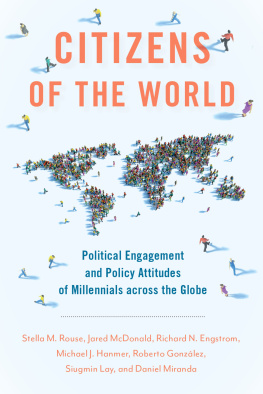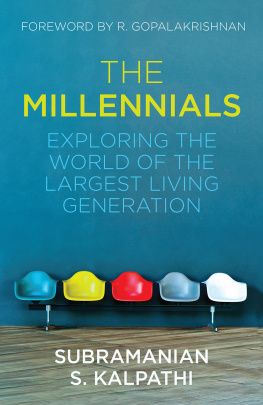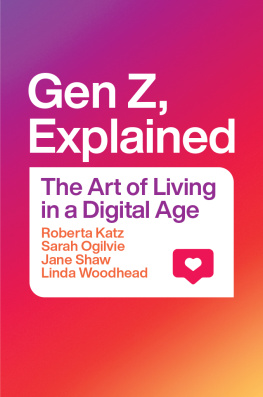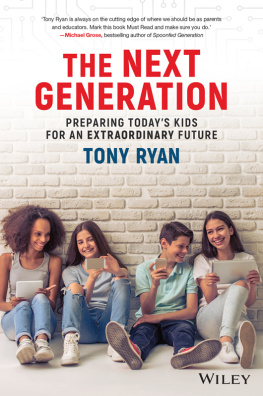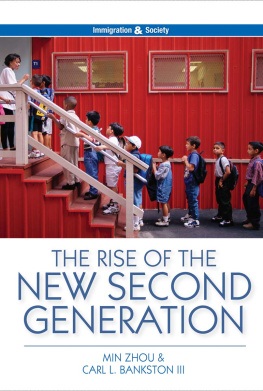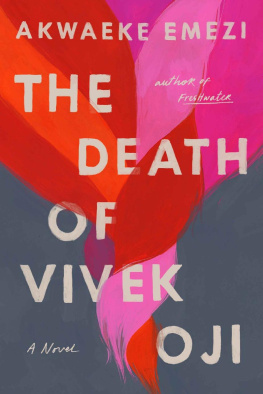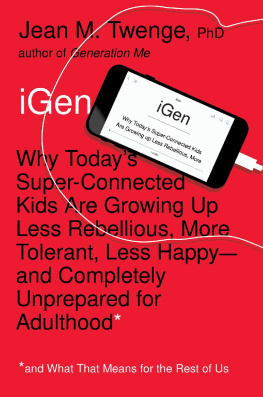All rights reserved. No part of this book may be used or reproduced in any manner without written permission except in the case of brief quotations embodied in critical articles or reviews.
To my fellow Gen Zersonce we understand who
we are, together we will accomplish great things.
Acknowledgments
Writing my first book was a journey that I began in my freshman year of high school at the age of fourteen, and one I completed two years later as a junior. As other authors have experienced, the process of writing a book is one of self-discovery. In my case, the process was also about discovering a new generation that is emerging: Generation Z. This path of self-discovery, both on an individual and also on a generational level, could not have been possible without the help and expertise of the following people:
My family. My dad was the spark that ignited my passion for writing and the one who suggested I consider transforming my journal entries into a book. My moms encouragement for me to set my own deadlinesand then her knack for showing me how to adhere to themwas the key to remaining on course throughout the whole publication process. My sister expanded my perspectives on many of the issues I have written about. She has been wholeheartedly cheerful and supportive in a way that only a sister could be.
My grandparents. My grandparents are part of the remarkable Silent Generation. Their journey through life is full of such incredible stories that I can now see the world through their eyes, with a view that is quite distinct from other generations. My paternal grandfather in particular, as an author and a speaker, offered practical advice that was invaluable.
My cousins. My Gen Z cohorts, who are all younger than me: thank you for letting me peer into your lives and appreciate who we are and who we will become.
My friends. Our candid conversations helped shape my understanding of our generation, and without this constant dialogue, I would not have had the material for a book.
Bryan Mark Rigg. Dr. Rigg, an author, historian, retired US Marine officer, and graduate of Yale and Cambridge Universities, has been my mentor throughout my high school years. His dedication to helping me discover my passions has been unwavering. I thank him for agreeing to read my manuscript and for writing the foreword.
The Brown Books Publishing Group. I am very appreciative of their work in transforming my manuscript into a published book. Knowing that a successful and reputable company had faith in me was an amazing feeling. My editor, Lucia Retta, challenged me to think critically and to look at issues from as many perspectives as possible. Thank you for your frank feedback throughout the process.
Foreword
I have known Vivek Pandit for his whole life. He comes from a family with deep roots in Kashmir, Afghanistan, and southern India. His family embraces a proud culture following the tenets of religious pluralism, tolerance, and kindness. The way they interact with their community is a true testament that they believe in the American dream that all men are created equal. In fact, the story of his family in America shows the power of the democratic ideals of diversity, industry, and education. I went to school with his uncle, Rahul Pandit, and his aunt, Lavannya Pandit, at Yale University. In fact, Lavannya is my wifes good friend and former roommate from Yale, so we have known of the family and been friends with certain members of it for over two decades.
Knowing Viveks background, it is not surprising how accomplished he is at the young age of seventeen. He comes from a tradition of hard work and intelligence in action, and he has taken on a huge task in trying to explain his generation, Generation Z, to the broader public with this book.
This generation is dominated by technology, and unlike other generations, it is communicating with each other about ideas at incredible speeds. Whereas a hundred years ago, it took weeks to report on events in the world, today, we learn about events halfway across the globe within seconds. In fact, Generation Z is learning more and more about less and less all the time. It, unlike other generations, learns of current events and scientific breakthroughs in real time and absorbs more than most generations simply by the fact that the information is accessible on their computers. A hundred years ago, one had to travel to elite universities to study difficult topics with accomplished professors. Today, with a click of the mouse, one can enter the world of prestigious universities and learn what the students are learning there. If a person wants to learn something difficult, he or she can download the information almost instantly using the vast library accessible through any Internet connection.
In this age of such broad exposure to the world through technology, a remarkable transformation is also occurring which Vivek discusses persuasively: the evolution of tolerance for diverse lifestyles and beliefs within Generation Z simply through exposure. Of course, Vivek realizes that there is much work to be done in the worldone just has to look at the ISIS movement in the Middle East and its religious racism, intolerance, and genocidebut he also describes how far the United States has come since Martin Luther King, Jr. and how social media helps to stamp out racism quickly in the age of texting, tweeting, and video chatting.
Vivek shows that his generation, through the use of the Internet, will revolutionize how people think and view others simply by the fact that more and more people are being exposed to diverse backgrounds, unique educational experiences, and other religions. The fact that many teenagers in Texas worry about racial, gender, and sexual inequality and want everyone to be aware of these issues and fight against discrimination is a sign that Generation Z is probably more open-minded and socially aware than any previous generation to have existed. One can argue that if there is a generation to help move mankind forward to truly believe that there is one race, the human race, Generation Z has the best chance of doing so. And Vivek does a nice job of showing how it might accomplish this lofty goal.
Bryan Mark Rigg, PhD
Author of Hitlers Jewish Soldiers:
The Untold Story of Nazi Racial Laws
and Men of Jewish Descent in the German Military
Sometimes it falls upon a generation to be great. You can be that great generation.
Nelson Mandela
Introduction
I was born at the turn of the millennium. I listen to music mainly by streaming it but occasionally purchase songs online. I have watched movies on DVD but prefer instant downloads. I grew up thinking the war on terror always existed but mostly in the background of life. My phones have always had touch screens.
To connect with family and relatives, I will occasionally use Facebook, but to communicate with friends, I rely on Instagram, Snapchat, and Twitter. For a conversation with one person or a small group, I prefer texting on my phone, although to contact my teachers or relatives I will use e-mail. For a while, I thought e-mail was what people meant when they referred to snail mail. Eventually I realized that snail mail was the paper stuff that goes through the post office, taking days to reach someone. I call that ancient mail.

